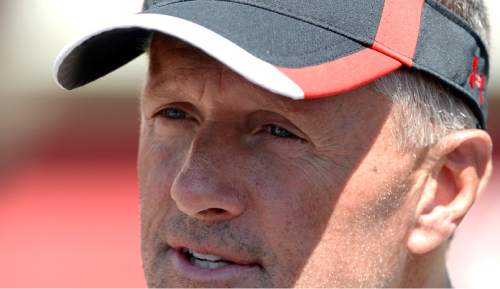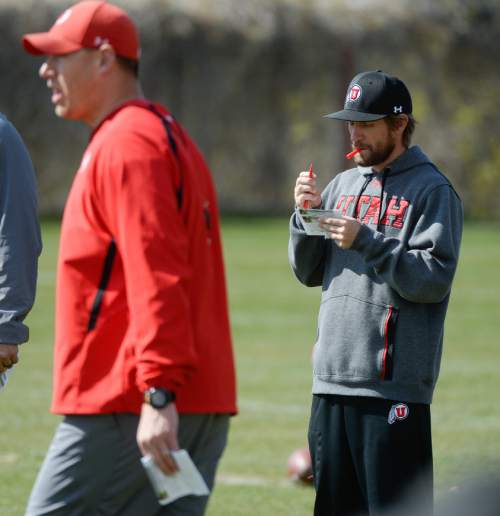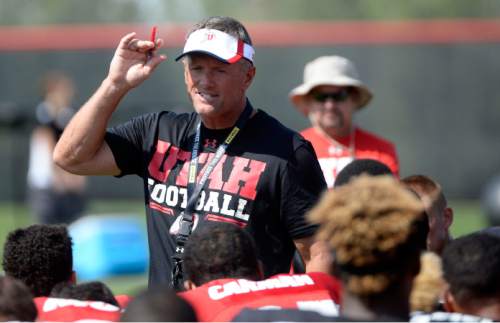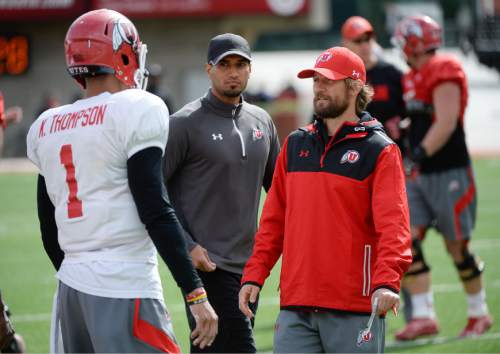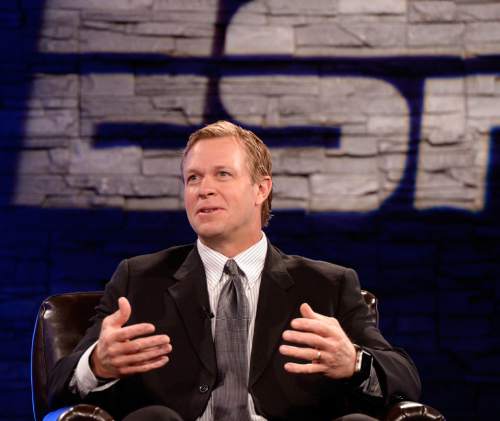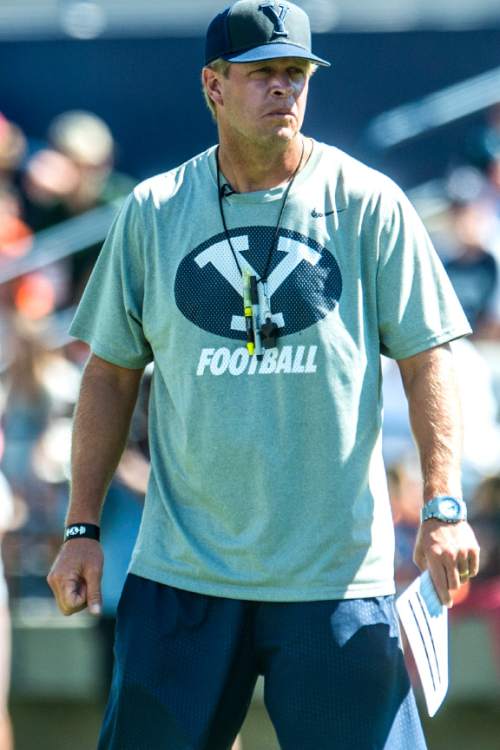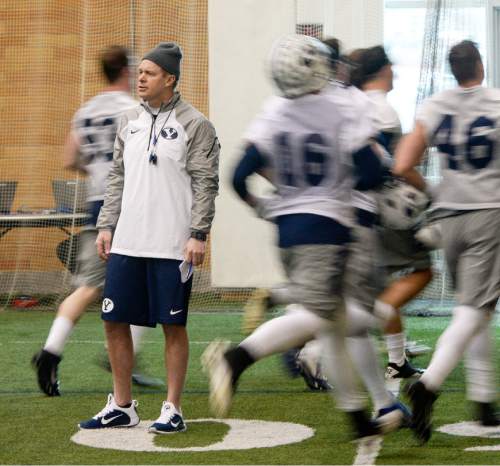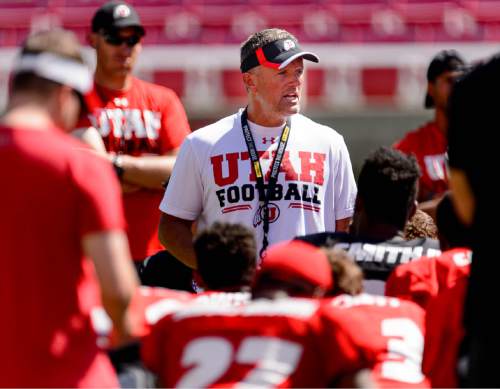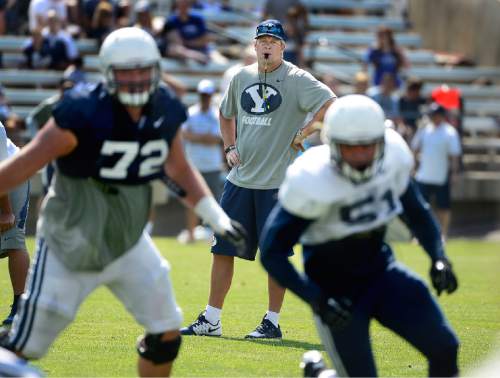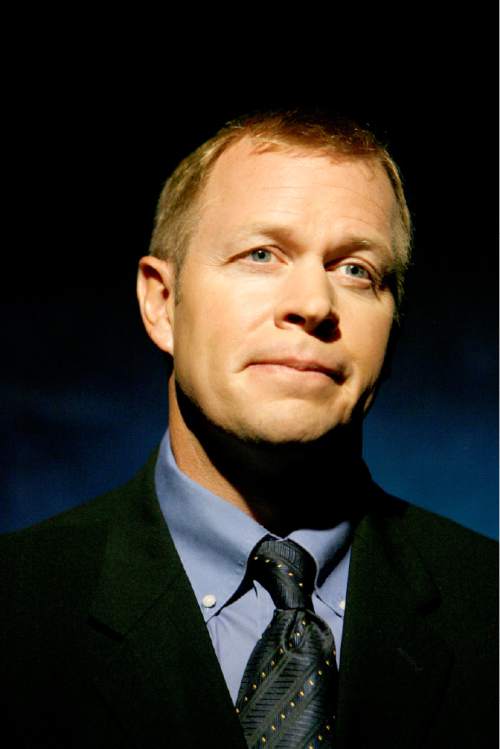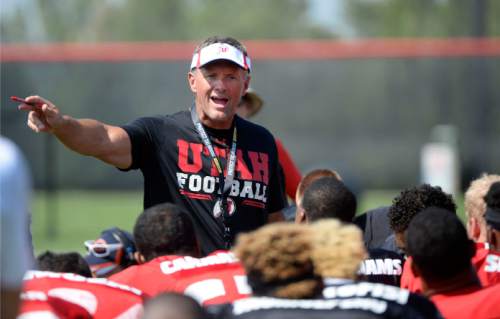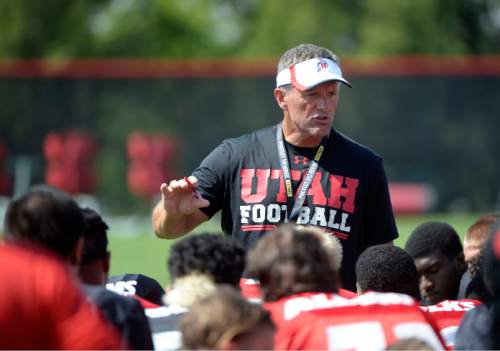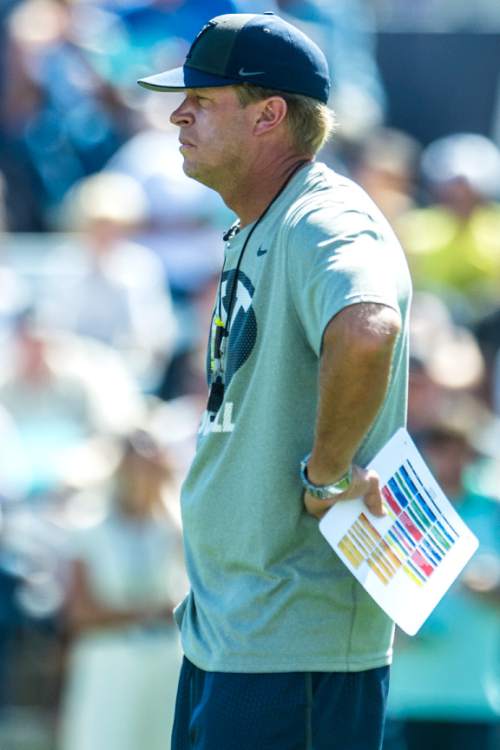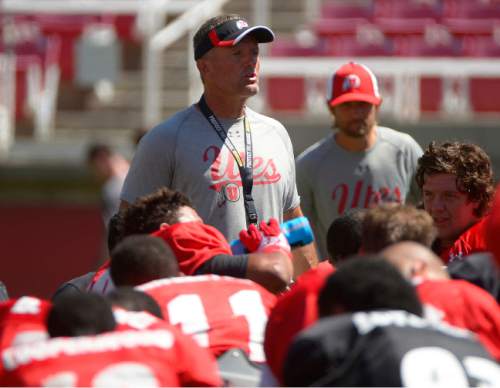This is an archived article that was published on sltrib.com in 2015, and information in the article may be outdated. It is provided only for personal research purposes and may not be reprinted.
The last time Bronco Mendenhall called BYU's defensive schemes in a game, Boise State's offense shredded the Cougars with 637 yards and 55 points.
The most recent passing play sent in by Aaron Roderick resulted in a completion for a 5-yard loss, concluding Utah's three-point, 200-yard production in the 2010 Las Vegas Bowl.
These are the people you want coordinating your offense and defense in 2015?
Yes, actually.
For all of his study of organizational behavior via the work of an advocate of unorthodox thinking, Mendenhall needed to do something conventional with the BYU defense — run it himself. And after all the twists and turns in Utah coach Kyle Whittingham's management of his offensive staff, the return to Roderick as the play-caller might work.
It will be fun to find out, that's for sure.
The 2015 season for the state's three FBS programs will be intriguing in so many ways. With three senior quarterbacks starting the year, new (and old) play-callers at all three schools, Michigan coming to Rice-Eccles Stadium and in-state matchups near the start and finish of the schedule, all that's missing is a Utah-BYU game, coming in 2016. Until then, common opponents Utah State, Michigan UCLA and Fresno State will have to do — not that anyone ever compares BYU with Utah, right?
In any case, the work of Mendenhall and Roderick will be fascinating to watch. Mendenhall immediately improved BYU's defense in October 2010 when he fired his coordinator after a loss at USU and took over the operation. Two years later, he directed the best defense in school history, with some help from NFL draftees Ziggy Ansah and Kyle Van Noy.
Wanting to become more of an administrator and offensive consultant, Mendenhall turned over the 2014 defense to coordinator Nick Howell. To say Howell's results were disastrous would overlook what happened at Boise State in late October, when Mendenhall chose to call the schemes for one night and the Broncos went wild.
Howell regained his role for the rest of the season and BYU almost escaped the Miami Beach Bowl with a victory, except that Memphis' kicker made a 54-yard field goal in the first overtime. The Tigers then completed a touchdown pass over BYU safety Kai Nacua in the second OT, winning 55-48 and triggering the brawl that involved Nacua.
The fallout of the 2014 season was not technically a demotion for Howell, who retained the coordinator title, but Mendenhall is in the meeting room and will make the game-day calls. It should work. In his 11th year as a head coach, Mendenhall's best trait is still his ability to run a defense.
Whittingham's only failing in his first 10 years as Utah's coach is his offense's inconsistency — and his impatience with some coordinators and impulsive hiring of others have been part of the problem. Roderick showed some good signs in 2010, Utah's last season in the Mountain West. The Utes scored 56-plus points four times and averaged 41 points and 439 yards in their 10 wins.
Conversely, they produced 4.3 points and 221 yards in three losses, including a poor showing against Boise State in the Las Vegas Bowl with a No. 2 quarterback. Norm Chow's availability led Whittingham to make a coordinator change, then came Brian Johnson, Dennis Erickson and Dave Christensen.
So Roderick has much to prove in 2015, joining offensive line coach Jim Harding as co-coordinator and becoming Utah's fifth play-caller in the five seasons since he last performed those duties.
Did Whittingham get it right by going back to A-Rod? Will Mendenhall's latest self-appointment solve BYU's problems? We'll learn a lot in September, by watching Michigan.
Twitter: @tribkurt


